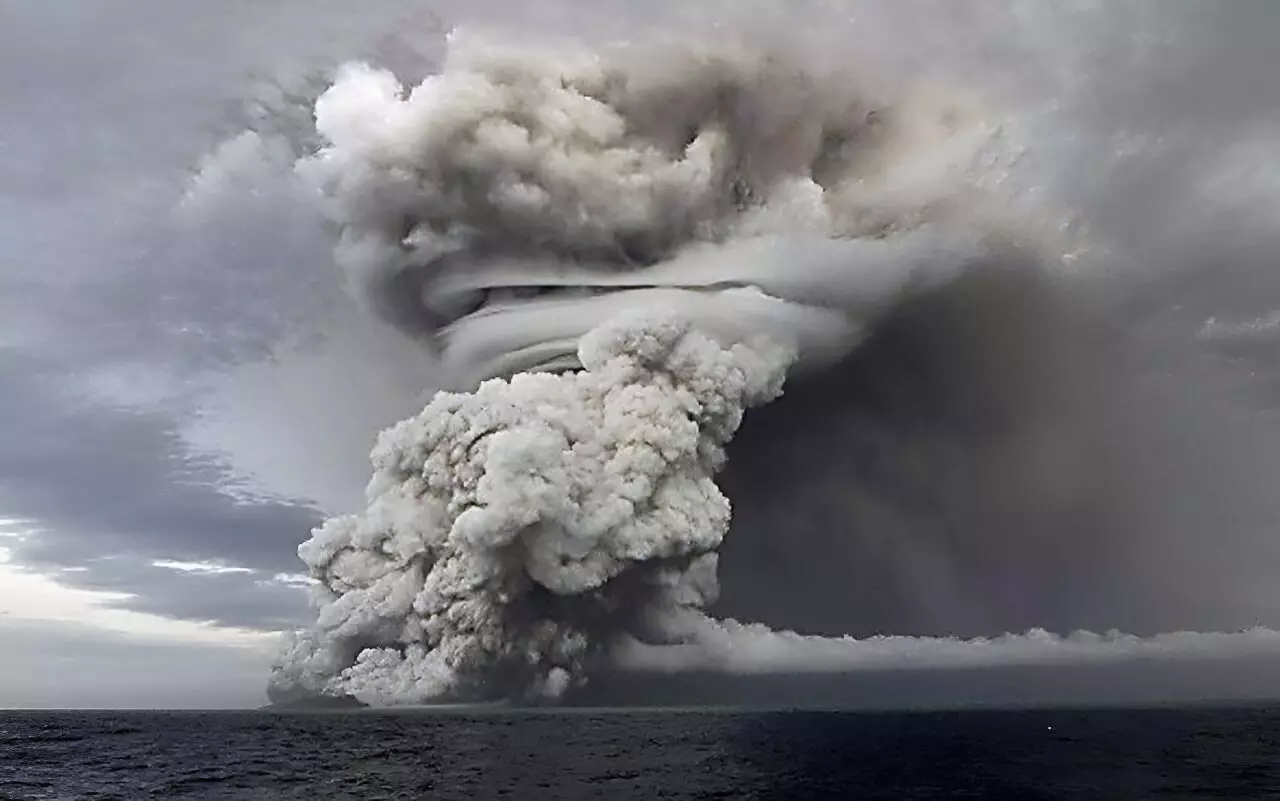The eruption of the Hunga Tonga volcano in mid-January 2022 injected significant amounts of volcanic aerosols and water vapor into the atmosphere. Unlike previous major volcanic events, Hunga Tonga, being a submarine volcano, introduced an unprecedented amount of water vapor into the stratosphere. This increase in total stratospheric water content by about 10% raised questions about the potential impact on global climate due to water vapor being a potent greenhouse gas.
A collaborative team led by atmospheric scientist Dr. Andrew Dessler, along with researchers from NASA and the National Oceanic and Atmospheric Administration (NOAA), published their findings in the Journal of Geophysical Research: Atmospheres. Contrary to initial speculation, the research revealed that the eruption actually contributed to cooling the Earth. By analyzing satellite data observations of aerosols and water vapor, the team estimated the energy balance of the Earth’s climate system and found that more energy left the system than entered, resulting in a slight cooling effect.
Dr. Dessler emphasized the importance of the research findings, stating that they dismiss the volcanic eruption as a major factor in the recent warming trends. Instead, the study reinforces the significance of human-induced greenhouse gas emissions as the primary driver of climate change. This clarification is crucial amidst the ongoing debate and misinformation surrounding the causes of global warming. The study also highlights the necessity of continued investment in satellite-based stratospheric measurements to enhance our understanding of climate dynamics.
While the study provided valuable insights, it also raised new questions about the Hunga Tonga eruption. The researchers noted unexpectedly low levels of sulfur dioxide production despite the eruption’s intensity, as well as the minimal impact on the 2023 ozone hole. The thinning of the ozone layer over Antarctica, allowing more harmful UV radiation to reach the Earth’s surface, was not significantly affected by the eruption. Moreover, the persistence of water vapor in the stratosphere beyond model predictions indicates gaps in our knowledge of stratospheric circulation processes.
Dr. Schoeberl emphasized the critical need for ongoing research and precise data to address the complexities of climate change. As scientists strive to resolve unanswered questions and deepen their understanding of the stratosphere, the study on the Hunga Tonga eruption serves as a reminder of the importance of sustained scientific inquiry. Investment in advanced monitoring technologies and data collection methods will be vital in confronting the challenges posed by climate change.
The research on the climate impact of the 2022 Hunga Tonga volcano eruption sheds light on the intricate interactions between volcanic activity, atmospheric dynamics, and global climate patterns. By refining our understanding of these complex processes, scientists can better inform policymakers and the public about the urgent actions needed to mitigate the effects of climate change.


Leave a Reply